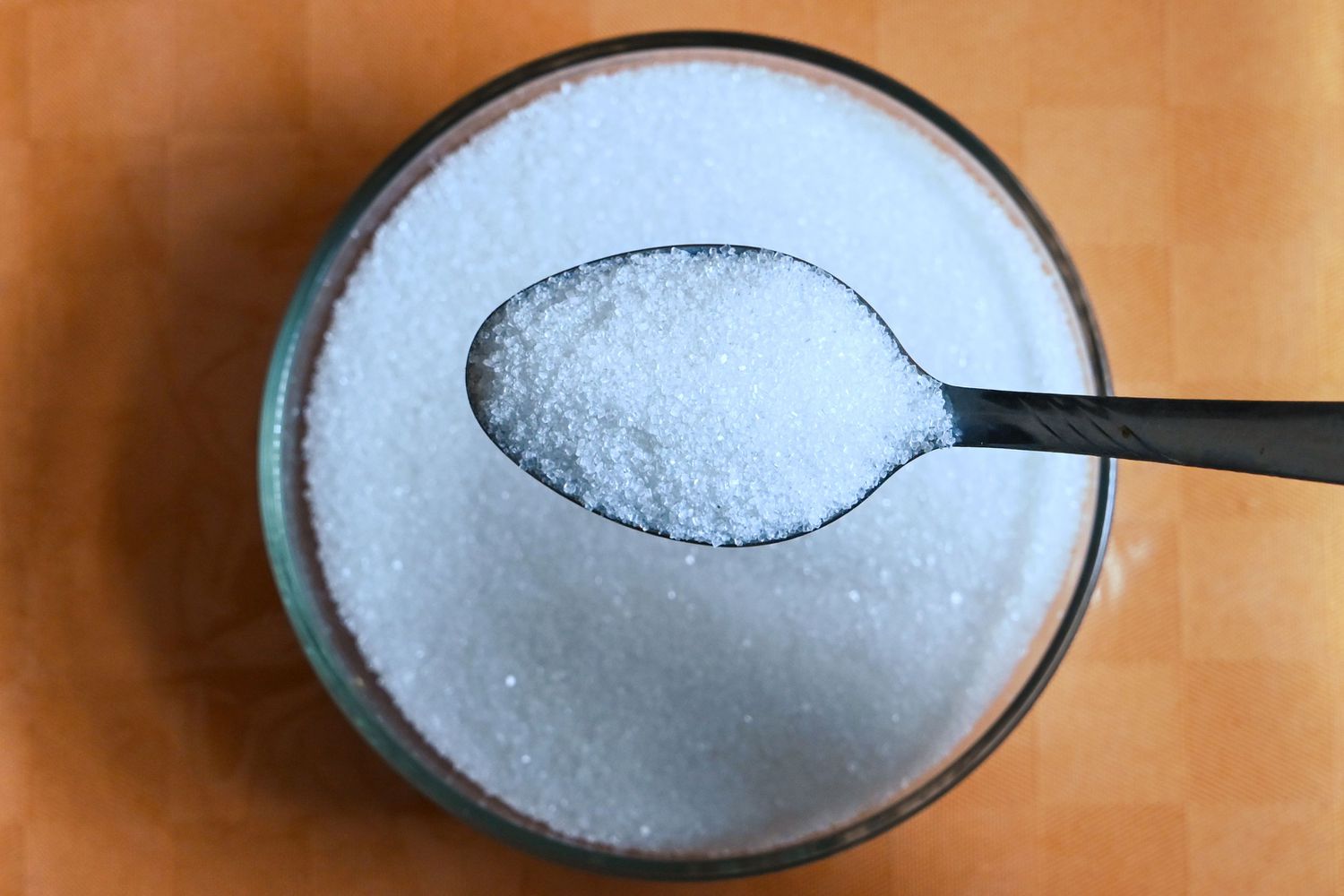Research Indicates Erythritol, a Widely-Used Sweetener, May Lead to Blood Clotting

A new study adds more evidence that erythritol, a common artificial sweetener, may be detrimental to heart health.
Researchers from the Cleveland Clinic found a link between consuming just 30 grams of erythritol—less than the amount usually found in a can of sweetened soda—and more active blood platelets. This can raise the chances of blood clots, which can restrict blood flow to the brain or heart, causing a heart attack or stroke.
Erythritol is a sugar alcohol produced by the body in small amounts and found naturally in fruits and vegetables. But it’s also manufactured as a sugar substitute that’s commonly found in larger amounts in a range of packaged and processed products, such as sugar-free gum, candy, baked goods, and beverages.
People managing diabetes or following low-carbohydrate diets that require reduced sugar intake often look for products containing erythritol, Michelle Routhenstein, MS, RD, a preventive cardiology dietitian at Entirely Nourished, told Health.
Though the Food and Drug Administration has designated erythritol as “generally recognized as safe,” or GRAS, a growing body of research has suggested that ingesting it may come with health risks. The new study is small but echoes previous research linking erythritol intake with blood clotting, heart attack, and stroke.
The findings suggest that discussion of “whether erythritol should be reevaluated as a food additive” is warranted, the authors wrote.
Two robust Cleveland Clinic studies revealing the potential risks of erythritol, as well as the ubiquity of erythritol in processed foods, led the researchers to take on this study, Stanley Hazen, MD, senior author and co-section head of preventive cardiology and rehabilitation in the Heart, Vascular, and Thoracic Institute at the Cleveland Clinic, told Health.
Hazen’s team recruited 20 people with no history of cardiovascular disease, hypertension, or diabetes. The group included males and females, with an average age of 30.
Researchers instructed participants to fast overnight. Then, half were told to drink water mixed with 30 grams of sugar, and the other 10 were directed to drink a mixture of water and 30 grams of erythritol. Blood samples were taken before and 30 minutes after participants drank their solution.
The scientists measured clotting potential by assessing blood levels of platelet markers like serotonin and CXCL4, which are linked to increased platelet activation. They found that people who drank the erythritol-sweetened beverage had blood levels of erythritol increase over a thousand times.
“Clotting potential also went up with every measure that we made,” Hazen explained, “whereas, in the volunteers who drank glucose, no such changes were seen.”
The enhanced platelet reactivity and clotting potential associated with erythritol consumption was statistically significant and seen across all participants.
The study didn’t explore why erythritol intake might induce platelet activation. Still, Hazen said that there’s something on platelets that sense erythritol. “We just don’t know exactly what the molecular receptor is that’s changing the intracellular signaling in the platelet,” he added.
Hazen believes that this study and previous ones conducted by his research group show that erythritol’s safety should be fully reassessed. His team has notified the FDA and the European Food Safety Authority, which also recognizes erythritol as safe, about its research.
While studies suggest that erythritol may play a role in blood clotting, experts said that more research is necessary to understand the sweetener’s true effects on clotting and heart health.
“It is an interesting study, but was performed on a very small number of patients, which may not represent our diverse population and its effects,” Arsalan Rafiq, MD, a non-invasive cardiologist at Tufts Medical Center, told Health.
Additionally, the study didn’t shed light on the potential long-term effects of erythritol consumption, Rafiq said. While “what they found is concerning,” he pointed out that the erythritol mixture “did not lead to clot formation, but processes that are involved in the formation of clots.”
Routhenstein said that more “long-term and large-scale human research is needed to make more conclusive recommendations about the safety of erythritol.”
This study and ones like it may cause confusion about the healthiest course of action—eating or drinking too much added sugar can contribute to health issues like heart disease, diabetes, and fatty liver, but is consuming erythritol-sweetened products any better?
Refiq stated that, regrettably, there is still much unknown about erythritol's effects on the body to come to a conclusion. There is "not enough evidence at this point to suggest that erythritol is unsafe," he explained, "but at the same time, we do not have enough data to say that it is safe for consumption."
Therefore, Rafiq, Hazen, and Routhenstein suggest limiting the consumption of sweetened foods as much as possible. Instead, they advocate for everyone—regardless of health status—to focus on consuming a variety of whole foods that are high in protein, fiber, healthy fats, vitamins, and minerals.
And when it comes to indulging in sweets, Hazen pointed out that, in his view, "it makes more sense to just use a natural product like fruit or a little bit of regular sugar or honey in moderation."




